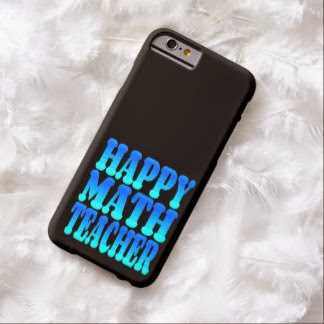Some of the students were working with decimals, some working with word problems, some wanted to be given some questions regarding my research Set, and some just wanted to be challenged with some of the work that I have been doing in college (of course I had to improvise and make it so that they could understand the gist of what I was talking about). As they attempted the problems, I went about the room peeking over the shoulders of some of the students. When the students got frustrated and wanted hints or the path to the answer, all I would say is try your best. I cared more about their process than the answer anyway. Even when they had the right answer and asked if it was correct, I would shrug my shoulders and say, "Can you find a different way to get an answer?" And if they thought that they could, then I would say, "See if you get the same answer in that case." The students may not be satisfied at first, but once they find another way, they answer their own questions. When compared to the previous answer, if they are the same, then the student feels satisfied that they were able to find it in two distinct ways. They can then go on to see the similarities and differences between the two ways that they approached the problem. Now, if they didn't get the same answer, they checked their own work and found their mistakes. What better way for students to learn from their mistakes?! They are defining where they are, how to change them, and how to avoid them next time.
From time to time the students would ask me, "If you don't want the right answer from me, then why am I doing this?" I had to sit and think about this one for a second. We, as people, do things on a daily basis in which we do not know the correct answer to. If we knew the correct answer all of the time how would we better ourselves? We wouldn't be able to because we would be too scared to try anything that we didn't know the answer to. Mathematics is the same way to me. How would we ever better our understanding and comprehension without taking the plunge into the unknown world? I know that we live in an education world where the right answer counts on tests. We obtain money from these tests to further our education and there is no alternative for that quite yet. However, our students can't be afraid of the math that lies before them. My phrase for the day with the students was, "take the leap," and that's just what they did for me.
My decision of becoming a teacher is defined more and more with each passing moment that I share with students. The students have been working with my mom for more than a year now in which they know that she does not look for right answers from them, but cares about their processes and how they believe to go about a problem. It shocks them that I didn't care about the right answer though. Maybe they thought that my mom was a rare teacher that doesn't expect the one correct answer, but it needs to be voiced more to students. Instead of being scared about what lies before them, they take that leap and better their understanding and comprehension without something holding them back. And that right there is what we want from our students.




I really liked how you tried to encourage the students to stop thinking about getting it right. And instead, you tried to focus them to think about what they were doing and why. The right-answer mindset is a going to be a tough one to break. I still have it in college, "What does the teacher want me to do?" "What is the right way to do this problem?" But problem solving, and trying and persevering, as you pointed out, are skills that teachers should also be teaching to students.
ReplyDeleteThis is a nice post because I feel like emphasizing the process instead of the answer not only teaches students more applicable concepts, but also helps to alleviate pressure. It can allow students to take chances which can create a much safer environment and a much more fun place to learn. Good job.
ReplyDeleteNice that the students wanted to know why they were doing what they're doing, and I'm glad you honored the question. On some level, because this is the work that makes you stronger, is the answer that really dovetails with a growth mindset.
ReplyDelete5Cs +
Photos of some of the student work, or inclusion of the problems you asked, would put it over the top.